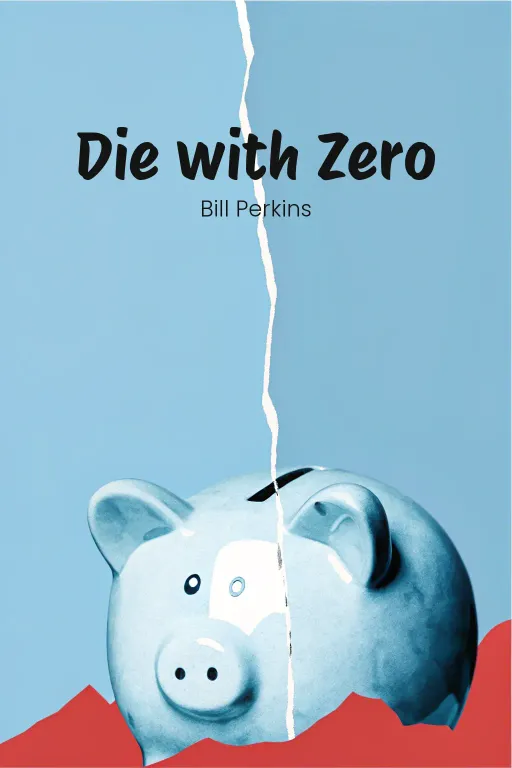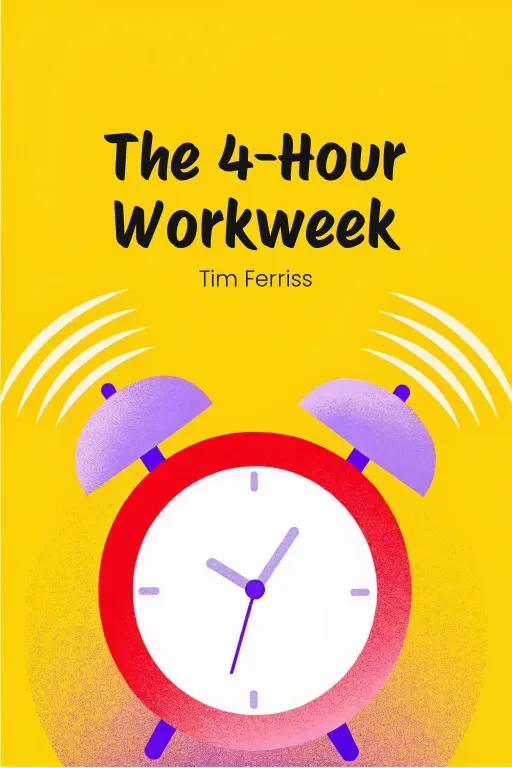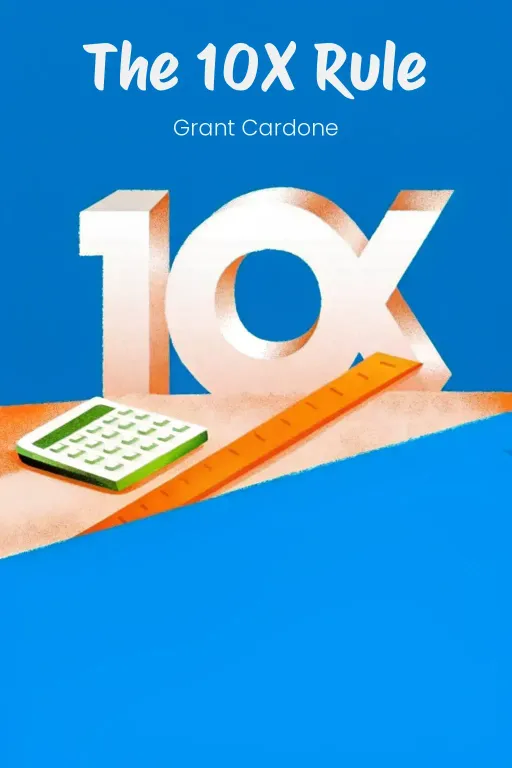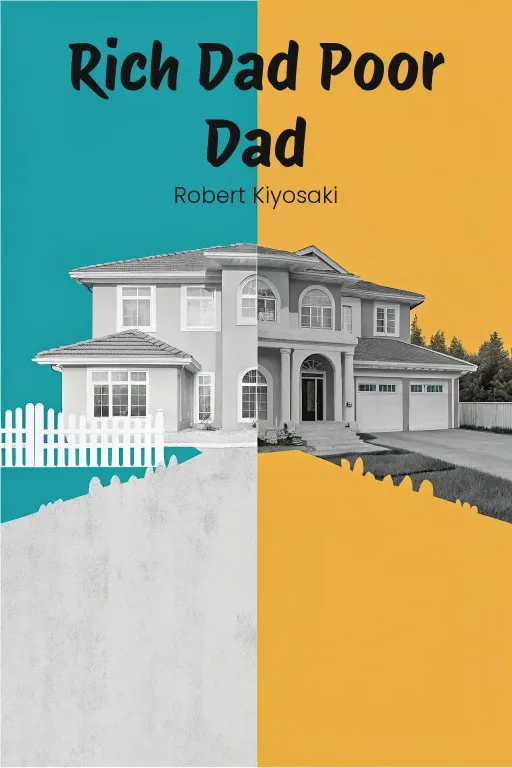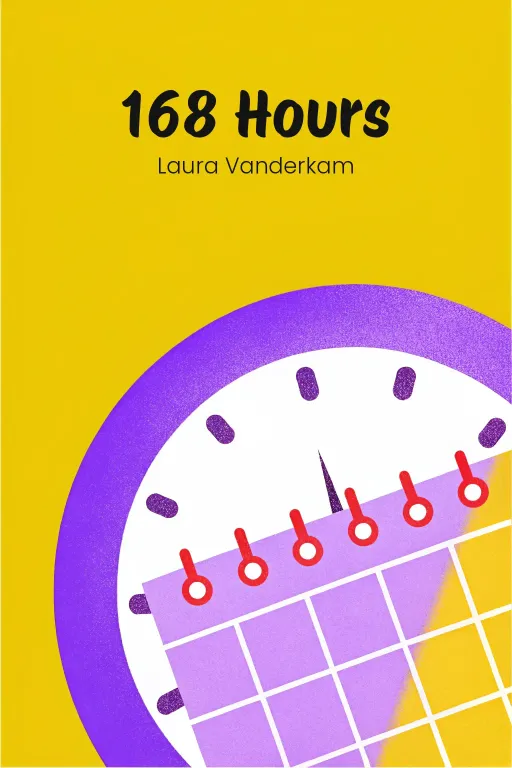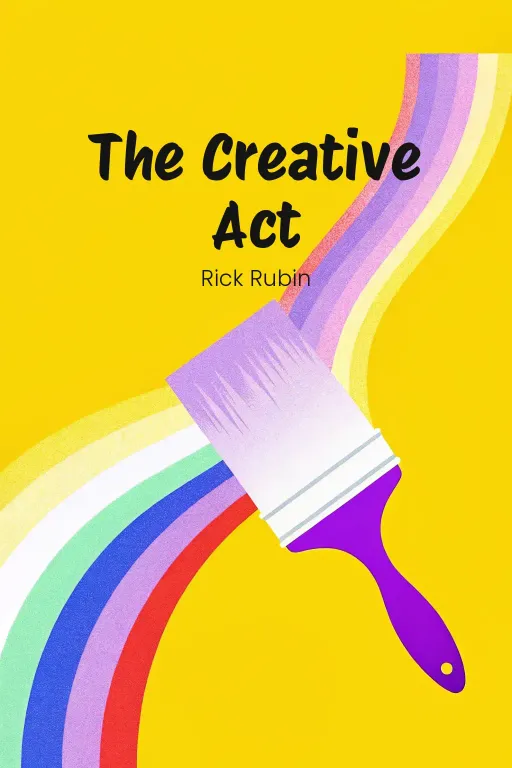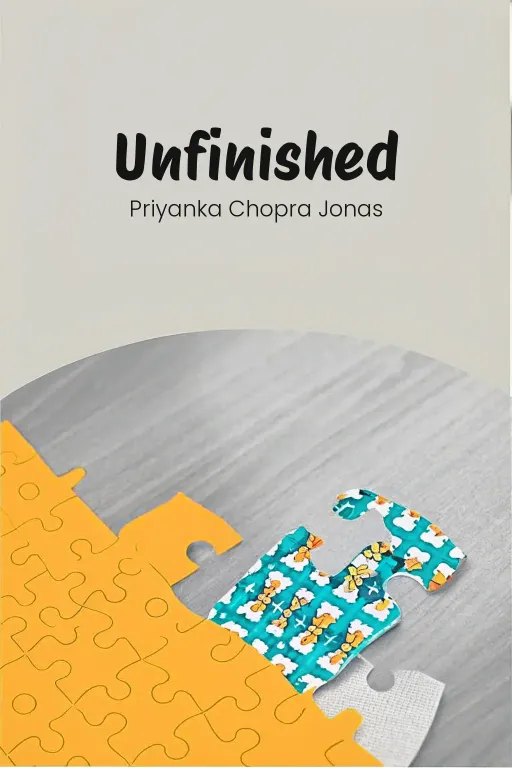
Live More: Experiences Over Endless Savings
Podcast by Beta You with Alex and Michelle
Getting All You Can from Your Money and Your Life
Live More: Experiences Over Endless Savings
Part 1
Alex: Hey everyone, welcome back to the podcast! Today we're tackling a really interesting philosophy—one that completely rethinks how we approach saving money. Michelle, let me throw this at you: If you knew you only had 24 hours left, what would you actually do? Michelle: Well, first thing's first, I'd definitely cancel my dentist appointment. But on a serious note, I guess I’d try to pack in as much as possible. You know, a fantastic meal, quality time with the people I care about, and maybe one final, utterly extravagant experience. What’s with the morbid question, Alex? Alex: Because that's essentially the core idea behind Bill Perkins' book, Die With Zero! The whole premise is that we often get so caught up in saving for some vague "someday" that we miss out on truly living. We fail to invest our money, our time, and our energy into what really matters: creating lasting memories and experiencing life to the fullest, while we can actually enjoy it. Michelle: Ah, so someone finally gave your YOLO tattoo a financial justification! I see. Alex: <Laughing> Sort of! Except it's not about reckless abandon; it's about being “really” intentional. Perkins introduces some really smart concepts, like “memory dividends”—how certain experiences continue to enrich our lives long after they've happened—and "time bucketing," a strategy for aligning your peak years with your biggest ambitions. Michelle: Okay, I'm intrigued. But let’s be honest here. Doesn’t this just sound like a fancy way to justify blowing through your entire savings and then just hoping you don't live past, like, 70? I mean, is there a bit more nuance to it than that? Alex: Oh, absolutely, there’s a ton more to it. Today, we're going to unpack three key ideas from the book. First, we'll explore why blindly chasing wealth can sometimes actually detract from a meaningful life. Then, we’ll look at how to strike a real balance between spending and saving, so you can enjoy today without completely sabotaging your future. And finally, we'll discuss why your health is “really” the secret ingredient in all of this – it's the currency that makes everything else possible. Michelle: So, we're talking about a roadmap for working less and experiencing more. I am curious about ways that Perkins makes this work without seeing into the future or having a limitless bank account ourselves. Alex: Exactly! Stick with us, and I promise it will all click into place. Let's dive right in!
Maximizing Life Experiences
Part 2
Alex: Okay, so picking up where we left off, let's dive into the core of Die With Zero - maximizing life experiences. Perkins argues that time, not money, is the real currency, and it's all about how we spend it. The "memory dividends" concept is key here. Michelle, have you ever thought about your life in terms of experiences being the best investment, more so than just accumulating wealth? Michelle: Well, I mean, a fancy vacation is fun in the moment, but a dividend? Isn't that stretching it a bit? You're back home with bills, and where's the lasting return? Alex: That's where Perkins flips things around. It's not just about that one week. It's about how often you relive it. You tell the stories, look at photos, and each time, you get a little boost of joy and meaning. That's the "memory dividend." It's the emotional gift that keeps on giving. Michelle: Okay, I get the concept, let's test it out. Say I backpacked across Europe in my twenties, like Jason Ruffo in the book. Now I'm 50, reminiscing. Isn't that just nostalgia? How does that translate into tangible value? Alex: The nostalgia is part of it, sure, but Perkins stresses how experiences build your identity. Jason Ruffo's story is a great example. He spent months in Europe, experiencing new cultures, meeting people, and even falling in love. Those moments shaped him – his confidence, his worldview, his understanding of relationships. Decades later, he can still draw on those lessons. Perkins even talks about regretting delaying his own Europe trip and missing out on the spontaneity of youth. Michelle: So, you're saying spending on experiences is investing in yourself. But what about material things? Are they totally bad? Do they bring no happiness at all? Alex: Not at all! Perkins isn't dismissing material things, but he questions how long that joy lasts. A new gadget or car might thrill you briefly, but that fades. Experiences stick with you because they become part of your story, part of your relationships. What's more fulfilling: a luxury watch or a family trip that changes everyone's lives? Michelle: Okay, I see his point. But let's talk about timing. "Time bucketing" is interesting – forcing you to think about when to pursue certain experiences. How does it work exactly? Alex: Good question! "Time bucketing" means dividing your life into phases and figuring out the best experiences for each phase. Perkins uses his 45th birthday party in the Caribbean as an example. He was healthy, had the energy, and the people he cared about could all join him. Maximize the experience! The idea is simple: do certain things when you're young, others when you're older and have more wisdom or resources. Michelle: Right, “use it or lose it” for experiences. But what if you miscalculate your lifespan? Like, I plan for bungee jumping at 30 and a quiet retirement at 60, but I live to 90? Alex: That's a valid concern, and Perkins addresses it directly. It’s about balance and planning for your "survival threshold." Don't spend recklessly. Calculate what you'll need later, and then prioritize experiences that matter most. Optimize; don't drain your resources. You don't want to postpone all joy for a future that might not happen as planned. Michelle: But does this account for the societal pressure to over-save? Our parents drilled the "rainy day" fund into us. And what about the guilt of not leaving something for the next generation? Alex: Definitely a fair point, and Perkins questions that too! Instead of hoarding out of fear, he suggests giving financial help when your kids or loved ones will actually benefit the most. Helping with a down payment at 30 is more impactful than leaving money in a will decades later. Create meaningful impact now, not when it's too late. Michelle: Hmm, that's a bold way to look at legacy. But what about delayed gratification? That's a financial advice staple. Perkins seems to flip it on its head. Alex: He does! His argument is that putting it all off for some future retirement is risky because it ignores aging and health. How many people save for decades and then are too tired to do anything? Far better to enjoy life in stages, adapting to your abilities. Don't throw caution to the wind, but don't let caution keep you from living. Michelle: Okay, I see why his philosophy resonates. People want more than just security. They want a life they can look back on without regret. So, it's about balance: living now while being prepared for the future. Makes sense.
Financial Planning for Fulfillment
Part 3
Alex: So, this all boils down to strategically using our resources to really amp up our life quality. Perkins provides practical tools to help us strike that balance between enjoying today and planning for tomorrow. It’s about seeing financial planning not just as a safety net, but as a way to squeeze every last drop of joy and fulfillment out of life. Michelle, let's dive into what he calls the “net worth peak” and “survival threshold”—two concepts that really shift the way we think. Michelle: “Net worth peak,” huh? Sounds like the financial equivalent of setting a personal best, right? Is this about reaching a certain savings goal before we give ourselves permission to splurge a little? Alex: Well, it's more nuanced than just hitting a savings target. Perkins defines the “net worth peak” as the point in your life where piling up more money just doesn't make sense anymore. Instead, you should start strategically spending down your savings to maximize your life experiences. It's about recognizing when you've built a solid foundation and then shifting gears to actually enjoy the rewards. Michelle: Hang on a second. Doesn't that sound a bit risky if you don't have a crystal ball? What if you switch to “spending mode” too early and wind up broke when you still need the money? Alex: That's why Perkins emphasizes careful planning. He's not saying, “just go wild!” He wants people to calculate their “survival threshold.” That's the minimum amount you need for a comfortable retirement, accounting for basic living expenses, healthcare, and a buffer for the unexpected. Once you know your survival threshold, any savings beyond that can be used to enhance your life right now, with confidence. Michelle: I see. But how do we realistically nail down this “survival threshold?” Life throws curveballs, and I suspect most people will err on the side of caution, stashing away way more than they need, just in case. Alex: Perkins actually calls out that tendency. He identifies that ingrained fear of scarcity—which is basically reinforced by social norms and conventional financial advice—as a major obstacle. But the survival threshold isn't just a guesstimate. It's based on actual numbers. Say someone figures their annual retirement living expenses will be $40,000 and they expect to live for, say, 25 years after retiring. That means they’d need a base of $1 million. Now, if this person's savings are already above that figure, there's really no compelling reason to keep hoarding cash. They can definitely start using some of it to enrich their lives, while still staying comfortably in the clear. Michelle: Right, so it flips the “save, save, save!” mantra on its head. And it goes beyond a simple calculation – it incorporates a proactive strategy too, doesn't it? Annuities come to mind. Do those help people manage this balance? Alex: Exactly. Perkins suggests using tools like annuities to handle longevity risk. An annuity gives you a guaranteed income stream for a specific period—or even for life—based on an initial investment. This guarantees a steady financial safety net, no matter how long you live. It's a way to lock in security, so you can confidently dedicate the rest of your resources to experiences, memories, and even helping your family. Michelle: Interesting take. So we shouldn’t see annuities or similar tools as something for super risk-averse retirees, but as a liberating force, a way to free yourself from the fear of running out of money and live life to the fullest. Alex: Precisely! And this liberation also shapes how Perkins reimagines building a legacy. Typically, people think of legacy in terms of leaving behind an inheritance. But Perkins advocates for a more dynamic and immediate approach: giving while you’re alive, when it matters most to those you’re helping. Michelle: But if parents give their kids money earlier in life—like for a down payment on a house—couldn’t that backfire? Couldn't that lead to dependency or kill their ambition? Alex: Good point, and it really hinges on how it's done. Perkins isn’t advocating for reckless gifting or creating dependency. He's urging people to be strategic and thoughtful – giving in ways that “really” benefit their loved ones' lives. Think about it: a financial boost towards education, a business venture, or buying that first home can have far more impact than a distant inheritance decades later. Basically, why wait to help someone when you can see the difference it makes right now? Michelle: That's “really” something to consider. And it ties into his overall point about timing, right? You're not simply maximizing your own experiences with this philosophy—you're also transforming the lives of the people you care about most, exactly when they need it most. It's such a powerful reframe of what legacy “really” means. Alex: And that’s the heart of this whole framework. It’s not about being financially irresponsible. It’s about prioritizing what actually matters: building a life filled with meaning, memories, connection, and joy, while still aligning with your own needs and the needs of those you love.
Health as a Fulfillment Catalyst
Part 4
Alex: So, we've talked about financial strategies and tackling mental barriers like financial anxiety. Now, let’s shift gears to health as a driver of fulfillment, another key part of Perkins' framework. And this isn’t just about avoiding illness, right? It's about how prioritizing your well-being can make your life richer and shape the legacy you leave. Michelle, are you ready to dive into why health might be the most valuable investment we can make? Michelle: I'm listening. But, uh, if this turns into a lecture about my questionable diet choices, I might have to hit the eject button. Alex: No lectures here, I promise! Perkins' perspective is both practical and, dare I say, empowering. He argues that health isn't just about surviving, it’s about enabling freedom. He points out that good health amplifies our capacity to enjoy life's moments and opens doors to experiences you simply can't have if you are physically unwell. And that makes sense, doesn’t it? Michelle: Okay, I see where this is headed. So, basically, a pile of cash is useless if I’m too unfit to actually enjoy it. Alex: Precisely! Perkins stresses that wealth, time, and health are deeply interconnected, and that health is the multiplier. He even shares the story of Stephen Stern... At 59, Stephen was a chiropractor and realized that his weight and sedentary lifestyle were holding him back, not just physically but emotionally. Michelle: Aha! Let me guess... He ditched the junk food, embraced green smoothies, and then ran a marathon? Alex: Well, it’s not just about what he did, but why. Seeing his middle-aged patients struggle with mobility issues forced him to confront his own potential future. He made some major changes – regular exercise, better eating – and the transformation was so much bigger than just losing weight. He gained energy, confidence, and a renewed ability to connect with the world. He even started hiking mountain trails with his daughter. Imagine the memories made and the bond strengthened. Stern's journey really highlights Perkins' core message: health equals freedom. Michelle: Okay, I can’t really argue with that. But what about people who say they’re just too busy, or that it’s too late to start? Life gets in the way, kids, deadlines… It’s easier said than done, right? Alex: It's true, but Perkins argues that the cost of neglecting your health is far greater than the effort it takes to maintain it. He uses the idea of compound interest – Einstein’s favorite, remember? – as an analogy for how small, consistent health choices add up over time. Skipping the gym or eating junk food might seem insignificant in your twenties, but by your fifties, those choices can snowball into chronic health issues. So, every small step towards health today is an investment in preventing future regret. Michelle: I like the financial angle here. But doesn’t this just become another overwhelming to-do list? Eat better, move more, get those steps in… How do you make this feel achievable? Alex: That’s a great question! Perkins is all about simplicity and intention. He suggests reframing health as something that enables you to do the things you love, rather than treating it as a chore. Set realistic goals, like family walks after dinner, or find a fitness class you genuinely enjoy. It’s not about getting a six-pack; it’s about being able to play with your kids, travel, or enjoy your favorite hobbies without limitations. Think of health as the freedom to fully participate in life. Michelle: Right. And speaking of participation, Perkins talks about how neglecting your health also limits your ability to create those "memory dividends" you mentioned. Can you give me some real-world examples? Alex: Sure. Imagine being on a family beach vacation, but you can’t walk far enough to explore the shoreline with your kids. Or missing out on a hike to a scenic overlook at your best friend’s wedding because it’s just too strenuous. These aren’t always the big, Instagram-worthy moments. They’re the everyday milestones that create connection and joy. As your health declines, the doors to those experiences gradually close, and you miss out on the moments that you live for. Michelle: Okay, that resonates. So you’re saying there’s a ticking clock here, and the sooner we invest in this "health dividend," the better our "return on life" will be. Alex: Exactly! And Perkins goes even further. He explains that health also synergizes with other life resources – time and wealth. Think about someone in his or her forties. They are often in a pretty advantageous position, with solid finances, good energy, and some of life's biggest responsibilities still ahead. By outsourcing the tedious and mundane tasks such as house cleaning or meal preparation, this person frees up time for things like weekend biking with friends. As you invest both your money and your health in doing these things, you are then rewarded with enhanced memories, deepened relationships, and greater fulfillment. Michelle: Okay, I’m buying that. The idea of using your resources creatively to reclaim time and energy for life’s best moments is pretty compelling. But isn’t there a cultural hurdle here? We’re conditioned to prioritize productivity above all else. “Grind now, rest later” is practically the motto of our generation. Alex: And that’s precisely what Perkins challenges. He argues that life isn’t a funnel where you pour everything in, only to cash it all out at retirement. If we pour so much into productivity that we neglect our health, we might end up with plenty of money for "later," but little ability to actually enjoy it. Wealth should enable health, not the other way around. Michelle: So, “health is wealth” isn’t just a cliché, it’s a literal strategy. Alex: Precisely. Perkins turns it into a framework. He even suggests treating health investments – gym memberships, fitness gear, wellness retreats – as essentials, rather than luxuries. He’s asking us to rethink our spending habits. Instead of the new gadget or a designer bag, what if we allocated that money towards something that protects our vitality and allows us to live life to its fullest? Michelle: It’s starting to sound less like a self-help book and more like a life optimization plan. But what about sustainability? How do you keep these lifestyle changes going long enough for them to really matter? Alex: He focuses on attainable, realistic milestones. Small, consistent efforts compound over time. Think about switching out sodas for water, things like that. Or developing a 20-minute walking habit. And once you begin to experience the benefits, such as deeper sleep or easier movement, it becomes easier to adhere to the program. The rewards intrinsically help to renew your motivation. Michelle: Fair point. So, the goal isn’t about extremes, it’s about freedom, right? Freedom to play with your kids, hike with friends, or just enjoy being present without aches or limitations. Alex: Exactly. Perkins reframes health as your personal gateway to fulfillment. It’s never too late to start repairing the foundation, of course, but the earlier you can start viewing health as freedom, the richer your life will become.
Conclusion
Part 5
Alex: Okay, so to bring it all together, “Die With Zero” is really pushing us to rethink how we see money, time, and health, right? We talked about how important it is to really prioritize those life experiences—you know, focusing on "memory dividends" and "time bucketing." It's about spending in ways that are meaningful now, while still being smart about our financial future. And we looked at how tools like figuring out our "net worth peak" and "survival threshold" can help us balance enjoying today with planning for tomorrow. And, of course, we can't forget how our health is the ultimate amplifier, making everything more enjoyable and letting us really dive into what life has to offer. Michelle: Yeah, Perkins definitely flips traditional financial planning on its head. Instead of just piling up money for some far-off future, he wants us to focus on making the most of right now—but with a plan. What I keep coming back to is how time, health, and money are all tangled up together, because if you're missing one, the others just don't hit the same way. Alex: Exactly! And if you take just one thing away from our chat today, let it be this: don't wait. Seriously. Whether we're talking about making memories, nurturing relationships, or just taking care of yourself, time is always moving. Start thinking about what really makes you tick, what brings you joy, and start figuring out how to use what you have to make it happen. Like, right now. Michelle: Right, it might be time to ask yourself some tough questions. Are you putting off being happy for some "someday" that might never come? Are you missing out on experiences because you're stuck in the daily grind? You gotta be intentional about this stuff, because life doesn't give you a refund for the time you let slip away. Alex: Couldn't have said it better, Michelle. So, here's the challenge for everyone listening: really think hard about how you're spending your most valuable resources—your time, your money, and your health. Where can you start building those "memory dividends" and really start living a life you'll look back on with zero regrets?


